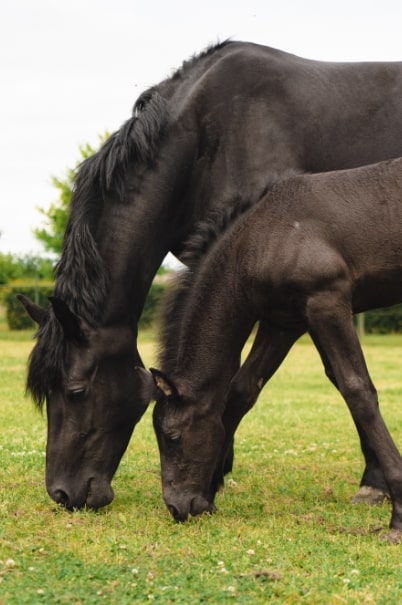Did you know that there are several different types of worms that can harm your horses? Common ones include roundworm, lungworm, tapeworm, and redworm. A heavy infestation of parasites can have a huge impact on horse health. It may cause weight loss, anaemia, colic, performance issues, respiratory problems, and poor growth. However, while treatment is important when necessary, you shouldn’t just blanket use wormer. It can lead to bigger challenges in the future, like proliferation of resistant worms.
Instead of relying on wormers, it’s best to focus on managing horses properly. The goal should be to reduce the risk of infestations and any need for treatments. Additionally, the process should be to rely on testing before committing to a treatment.
Schedule
The best thing to do is ensure you have the right kind of schedule in place for testing your horse. The most important one is faecal egg count (FEC) tests. They can give you an accurate idea of the worm burden based on how many eggs there are in faeces. You can get a picture of the roundworm, tapeworm, and many other types. It’s wise to test once or twice during the grazing season (March – September), collecting fresh manure from the pasture.
As well as FEC tests, you should conduct a saliva test in September/October to see if there is a problem with tapeworm. It’s a more effective way to accurately diagnose tapeworms. If there is a high burden, you can target it with praziquantel wormer.
In winter, you should be focusing on encysted small redworm. An FEC test can help give you an idea of the burden, but you may also need a blood test. If there is a problem, a moxidectin dose can treat it.
Management tips
There are several things you can do to reduce the likelihood of worms becoming an issue. Firstly, you need to be proactive with pasture management. Ensure you clean fields regularly to remove manure and any worm eggs. If possible, do it every day, especially on smaller plots. Secondly, ensure you don’t overstock; your goal should be 2 acres per horse.
Another thing you can do is rotate paddocks and put other animals on them after horses. While it may sound like a bad idea, cattle and sheep can ingest equine worms, clearing the paddock. Luckily, the worms won’t develop into adults in their new host, so there is no harm.
Next, if you do need to use wormer, it’s best to make sure you choose the right product and dose properly. Most importantly, check the active ingredient and which worms it is effective against. In addition, make sure you weigh horses to determine an accurate dosage.
It’s important to be aware of the weather too. Worms live longer on pasture when it is wet. If it’s hot and dry, they shrivel up. Depending on the weather, you can change how you manage the paddocks. Picking up and removing manure is much better if it’s been wet. In dry, sunny spells, harrowing can be effective to break up manure and expose worms to the sun.
Finally, you need to make sure you don’t allow horses to mix too easily. Ideally, keep younger and older ones separate; there is a higher risk of issues with young horses so you don’t want them to mingle. If you’re bringing in any new horses, make sure you keep them separate and do tests before introduction. It reduces the risk of introducing worms.
Speak to us about wormer
Worms are one of the biggest causes of ill health in horses. So, you should be doing all you can to tackle them. This includes regular testing and proper management and maintenance. Then, if you do need to use wormers, ensure you are careful and minimising the risk of resistance becoming an issue.
JS Hubbuck Ltd is the perfect resource if you want to be clear on wormer. We’re knowledgeable about the different products on the market, and how to use them effectively. So, get in touch today if you’ve got any questions or want to order products.

